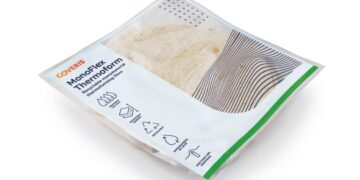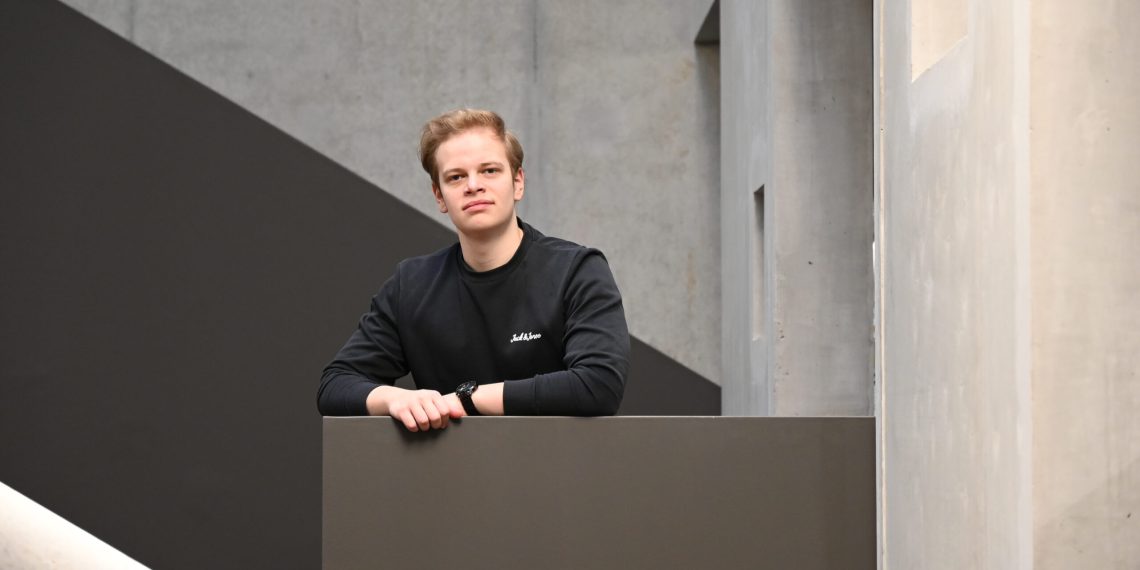Andreas Scharf, a computer science student from Coburg, uses microcomputers to network elevated tanks in the water industry. This is how he became a company founder in Lower Franconia. Water is one of the most precious resources of the blue planet. Today, the waterworks of cities and municipalities measure all relevant data in their plants to ensure supply and quality, and this is now mostly done digitally. However, only stationary on site. Not networked.
“People control their coffee machine and the light via cell phone. But for the community’s elevated tank, which stores the drinking water and cost a few million euros: There’s no proper app for that!”
- Andreas Scharf
The student found it unbelievable that a water custodian can’t see the status online at any time. So he developed an affordable, modern solution for municipalities himself. That was the basis for founding his company frapp.
Waterworks all over the world
In addition to his studies at Coburg University of Applied Sciences, Scharf worked at Energie- und Wasser-Technologie EnWaT, a water system builder based in Stettfeld, Franconia (Haßberge district), whose customers include industrial companies and municipalities all over the world — with different, very individual needs, focuses and problems. Is there a leak somewhere, did the refilling during the night perhaps not work out? What is the water level right now? Or a question that is particularly crucial for health departments: What is the temperature development? To check something like this, there is often only one option: get in the car and drive to the elevated tank. At EnWaT, the digitalization of water treatment and supply systems has been discussed in a very innovative way, Scharf explains. “It’s not that there are no apps at all. For example, the major control system manufacturers offer software to visualize the data. But then what does it mean when a curve breaks in? That’s what municipalities need.” And that was Scharf’s approach: “I’ll put the data on your phone and also tell you what you can do with it.”
Applied science
He taught himself the basics of programming as a teenager. “There was a book on Java lying around at home — I tried that out.” Back then, he went to Realschule, then switched to FOS, graduated from high school in 2018, and started his bachelor’s degree in computer science at Coburg University of Applied Sciences right after that. As part of the Communication Systems event, Scharf attended an IoT workshop with Prof. Dr. Matthias Mörz and dealt with the very topic that the waterworks are missing. IoT, the Internet of things, makes it possible to network physical and virtual objects.
So, for example, the high water tank and the app on the cell phone. Mörz likes his student’s solution: “It’s just nice to see how he lives the basic idea of applied science,” says the professor. The technology of Scharf’s “HBBox” for elevated tank digitization consists in particular of a circuit board that translates information from existing industrial sensors for microcomputers. It allows the data to be stored in a cloud via cellular or the free wireless standard LoRaWan and, for example, a push message pops up in the app when special events occur. “The municipality has access to the data at all times — regardless of where the employees are. Irregularities can be detected right away,” says Mörz. Digitization helps prevent water losses.
High water tank in your pocket
The high water tank in Scharf’s home municipality, for example, is fully networked. Scharf can access it from Coburg. He looks at his cell phone, frowns “There’s a lot going out right now for the noon hour. Maybe a fire call.” In any case, the waterworks knows: what flows when is absolutely transparent in Stettfeld. Scharf brought the elevated tank into his back pocket. EnWaT, the company where he got a lot of input on plant technology as a working student, is now his customer, and so Scharf’s digitization technology was also used during the floods in the Ahr Valley in 2021, when the company deployed a mobile waterworks in a shipping container there. Scharf founded his own company, frapp, in 2020. He shrugs his shoulders: “The first Corona summer. You didn’t have much else to do then.” He was 19 at the time. Today, he’s thinking about other fields of application for his HBBox: “We can digitize not only in the area of drinking water. I could also cover sewage treatment plants.”

















